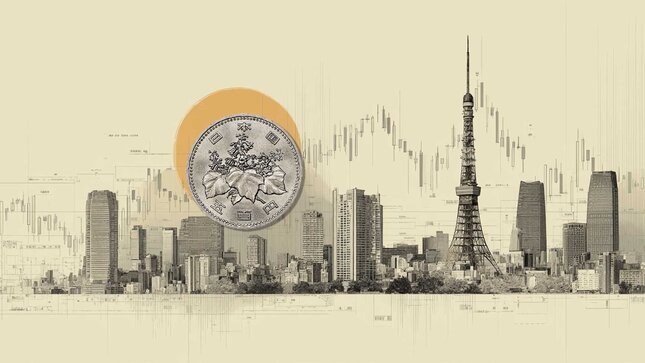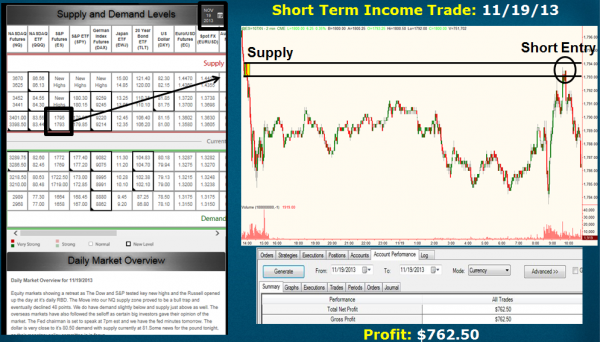![]()
Last week I spent 2 days at Caesars Palace in Las Vegas, giving a couple lectures at the Money Show. Most people do not like to mix the words trading and gambling. For many, this somehow gives the impression that trading is like some secret poker game in someone’s basement, a dark alley game of dice, or weekend trip to Las Vegas. While these three examples may not sound glamorous, they all share the important aspects of trading. Whether you are playing a poker game for money, trading one of the various markets we trade, or Pepsi buying commercial time on television, money is being put at risk with the intention of a desirable return on that investment. In any of these examples, there is no certainty, there is only the opportunity for better odds and the astute trader (market speculator) knows this. Even Pepsi does not know what kind of return they will get when they buy commercial time on a network. They have an idea but they never know the exact return, it is a gamble.
You see, when you keep it real and understand that trading is gambling, you will then understand that it is the ultimate form of gambling. It happens to be the type of gambling where we the trader can STACK the odds in our favor, much better than you can in Vegas or even the casino for that matter. Imagine you are playing a card game in Vegas only this time, you can decide whether you want to put your money down on the table AFTER you see your cards and the dealer’s cards and also bet as much money as you like on this hand. That’s trading my friends and that’s why it is the premier form of speculating on the planet. I have a friend who always tells me that the trading I do is just gambling and I tell him he is right only that it happens to be the type of gambling where you can absolutely stack the odds in your favor. Caesars Palace, Mandalay bay, and the others don’t enjoy the odds we are able to attain in trading. The key is to follow your plan just like Vegas does and keep the losses small and the gains larger.
Trading with objective supply and demand analysis, we have the ability to clearly determine probability, risk, and reward and only put my money at risk when the odds are stacked in our favor. Here is an example:
When to sell:
A rally in price to supply (retail)
Odds enhancer:
1) Properly located on the larger time frame supply / demand curve
2) With a substantial profit margin of at least 3:1 (reward/risk)
3) A quality supply level
a. Song decline in price from supply suggesting a big supply/demand imbalance
b. A supply level that has not been retested yet which offers the greatest odds
4) Is the rally in price to supply a stair step rally suggesting a low odds sell or is the rally a strong rally in price to supply suggesting a much higher odds selling opportunity
Each odds enhancer increases the probability of your potential bet (and there are more quality odds enhancers). After objectively assessing your odds based on the setup you see on your chart, you can then decide how much of your capital you want to risk on the trade (bet). Vegas would LOVE to have these odds but they don’t come close. The one thing Vegas does however that brings them consistent riches is that they don’t change their rules when they lose. They know they are going to lose money every day but at the end of the day, they almost always come out ahead with profits. They have a system that tilts the odds in their favor so they know that all they have to do is stick to the plan and they will profit. Imagine if they became emotional and changed the rules each time they lost. If they did that, they would not enjoy the profits that they do.
Let’s take a look at a trade from last week I was able to take from our supply/demand grid. The grid identified an objective supply level (black box). This supply had a few key Odds Enhancers suggesting a low risk, high reward, and high probability selling opportunity when price rallied back to that level. A short time later, price rallied to that level meaning someone was buying at that supply level. This is where the trade (bet, gamble, speculation) takes place. The buyer is betting that price will rise and the seller is betting that price will decline. Call it a trade, bet, or whatever, they are all exactly the same thing. As the seller, we know the odds are stacked in our favor, obviously the buyer doesn’t or they would not be buying at that supply level. By being very disciplined in our strategy rules and Odds Enhancers, we are essentially doing the same thing as Vegas. The key for us is to not change any rules and don’t think.
Income Trade Nov. 19, 2013
Price declined strong off that level which meant profits for the seller and losses for the buyer, this is what makes a market (and a casino).
With the ability you have in trading markets, make sure you have a set of rules that stack the odds in your favor. If you don’t have that set of rules, don’t trade because you are competing with traders who do and you will very likely lose. Once you have that set of objective and mechanical rules that help stack the odds in your favor, make sure you stick to it and understand you will still have losses sometimes but that’s ok, think of the casino and all the times they lose in a day. Remember, in trading, gambling, speculating or whatever you chose to call it, the one thing that is certain is the lack of 100% certainty with each individual outcome. Instead of searching for certainty, become a part of the astute trading community that only searches for better odds. And lastly, understand that trading, like gambling is certainly not for everyone.
Hope this was helpful, have a great day.
Note: All information on this page is subject to change. The use of this website constitutes acceptance of our user agreement. Please read our privacy policy and legal disclaimer. Opinions expressed at FXstreet.com are those of the individual authors and do not necessarily represent the opinion of FXstreet.com or its management. Risk Disclosure: Trading foreign exchange on margin carries a high level of risk, and may not be suitable for all investors. The high degree of leverage can work against you as well as for you. Before deciding to invest in foreign exchange you should carefully consider your investment objectives, level of experience, and risk appetite. The possibility exists that you could sustain a loss of some or all of your initial investment and therefore you should not invest money that you cannot afford to lose. You should be aware of all the risks associated with foreign exchange trading, and seek advice from an independent financial advisor if you have any doubts.
Editors’ Picks

EUR/USD: US Dollar to remain pressured until uncertainty fog dissipates Premium
The EUR/USD pair lost additional ground in the first week of February, settling at around 1.1820. The reversal lost momentum after the pair peaked at 1.2082 in January, its highest since mid-2021.

Gold: Volatility persists in commodity space Premium
After losing more than 8% to end the previous week, Gold (XAU/USD) remained under heavy selling pressure on Monday and dropped toward $4,400. Although XAU/USD staged a decisive rebound afterward, it failed to stabilize above $5,000.

GBP/USD: Pound Sterling tests key support ahead of a big week Premium
The Pound Sterling (GBP) changed course against the US Dollar (USD), with GBP/USD giving up nearly 200 pips in a dramatic correction.

Bitcoin: The worst may be behind us
Bitcoin (BTC) price recovers slightly, trading at $65,000 at the time of writing on Friday, after reaching a low of $60,000 during the early Asian trading session. The Crypto King remained under pressure so far this week, posting three consecutive weeks of losses exceeding 30%.

Three scenarios for Japanese Yen ahead of snap election Premium
The latest polls point to a dominant win for the ruling bloc at the upcoming Japanese snap election. The larger Sanae Takaichi’s mandate, the more investors fear faster implementation of tax cuts and spending plans.
RECOMMENDED LESSONS
Making money in forex is easy if you know how the bankers trade!
I’m often mystified in my educational forex articles why so many traders struggle to make consistent money out of forex trading. The answer has more to do with what they don’t know than what they do know. After working in investment banks for 20 years many of which were as a Chief trader its second knowledge how to extract cash out of the market.
5 Forex News Events You Need To Know
In the fast moving world of currency markets where huge moves can seemingly come from nowhere, it is extremely important for new traders to learn about the various economic indicators and forex news events and releases that shape the markets. Indeed, quickly getting a handle on which data to look out for, what it means, and how to trade it can see new traders quickly become far more profitable and sets up the road to long term success.
Top 10 Chart Patterns Every Trader Should Know
Chart patterns are one of the most effective trading tools for a trader. They are pure price-action, and form on the basis of underlying buying and selling pressure. Chart patterns have a proven track-record, and traders use them to identify continuation or reversal signals, to open positions and identify price targets.
7 Ways to Avoid Forex Scams
The forex industry is recently seeing more and more scams. Here are 7 ways to avoid losing your money in such scams: Forex scams are becoming frequent. Michael Greenberg reports on luxurious expenses, including a submarine bought from the money taken from forex traders. Here’s another report of a forex fraud. So, how can we avoid falling in such forex scams?
What Are the 10 Fatal Mistakes Traders Make
Trading is exciting. Trading is hard. Trading is extremely hard. Some say that it takes more than 10,000 hours to master. Others believe that trading is the way to quick riches. They might be both wrong. What is important to know that no matter how experienced you are, mistakes will be part of the trading process.
The challenge: Timing the market and trader psychology
Successful trading often comes down to timing – entering and exiting trades at the right moments. Yet timing the market is notoriously difficult, largely because human psychology can derail even the best plans. Two powerful emotions in particular – fear and greed – tend to drive trading decisions off course.



